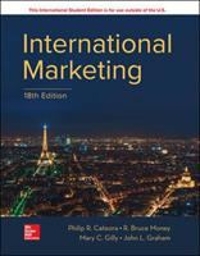Question
14.The following is an excerpt from the abstract of a recent journal article entitled The Effects of Maternal Fasting During Ramadan on Birth and Adult
14.The following is an excerpt from the abstract of a recent journal article entitled "The Effects of Maternal Fasting During Ramadan on Birth and Adult Outcomes" by Almond and Mazumder (2007). Ramadan is the traditional month of daytime fasting by Muslims:
We use the Islamic holy month of Ramadan as a natural experiment for evaluating the short and long-term effects of fasting during pregnancy. Using Michigan natality data we show that in utero exposure to Ramadan among Arab births results in lower birthweight and reduced gestation length. Preconception exposure to Ramadan is also associated with fewer male births. Using Census data in Uganda we also find that Muslims who were born nine months after Ramadan are 22 percent (p = 0.02) more likely to be disabled as adults. Effects are found for vision, hearing, and especially for mental (or learning) disabilities.
(a)Describe how one or more theories discussed in this chapter might explain the findings by Almond and Mazumder.
(b)[Extra Credit] Suppose that a scientific study determines that fasting during Ramadan actually has no causal effect on fetal health. What other factor could explain the Michigan results? Do you think your explanation is likely?
Step by Step Solution
There are 3 Steps involved in it
Step: 1

Get Instant Access to Expert-Tailored Solutions
See step-by-step solutions with expert insights and AI powered tools for academic success
Step: 2

Step: 3

Ace Your Homework with AI
Get the answers you need in no time with our AI-driven, step-by-step assistance
Get Started


